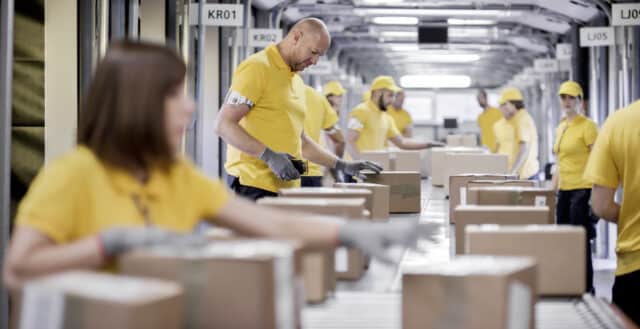
Current market conditions are intensely competitive for industrial and logistics businesses of any size. Often, there’s slim profit margins, all while having demanding expectations to meet.
This is especially true for industrial and logistics SMEs, where the opportunities to win new clients and expand are stifled, whether during the peak seasons or other times of the year. To be in with a chance of scaling up, businesses need to be aware of the challenges they face and some of the measures they can take to improve. Read on to learn how you can make your operations more efficient, appeal to competent and quality workers, and larger developments to contend with.
Building efficient operations
- Optimise your inventory. Check that you’re working from the latest data available and, if necessary, organise a stock take in a quieter time of year. Look into technological innovations, like RFID tags and augmented reality, to label items effectively and ensure accurate numbers are taken.
- Organise space efficiently. Store your stock logically; if certain items are sent more frequently and in greater quantity, ensure they’re located in a safe, prominent and easily accessible area. Similarly, store items that are often sent together near each other, reducing the need for staff to navigate your entire site.
- Improve staff routes. Keep track of how your staff are navigating your site as they undertake their duties. While day-to-day demands can differ, check whether there are any recurring issues, such as staff bottlenecks in parts of the site, delivery vans queuing inefficiently or clarifying the chain of command for decision making.
- Minimise health and safety hazards. Make sure you’ve undertaken a thorough risk assessment of your workplace, are aware of any variables (like recently delivered flammable stock) and that staff are knowledgeable of best practices. Minimising risks to your staff could save not only money but lives.
Sourcing the staff you need
From prior reports, the logistics industry employs 2.3 million people, which means that one person in every 12 people in the UK work in the sector, an eye-grabbing figure. Previous research indicates that a high proportion of workers in each logistics sub-sector is over 35 years old, which means that vacancies are opening to a growing portion of the workforce: millennials. However, at the point in which the sector most needs new blood, millennials are turning away from logistics, perceived by some as low paid, strenuous and inflexible. In fact, according to a 2019 report from CILT and Statista, 54% of logistics operators are expecting skills shortages to increase over in the near future.
Recent coverage of industrial businesses in the U.S. notes that employers are incorporating amenities more associated with those at tech start-ups, including coffee bars and lounges. Other employers are experimenting with increasing pay, offering shift flexibility and highlighting the diverse array of skills workers can develop, plus the sector’s vital importance to the economy.
Is your business tapping into the potential of young people? Ensure that you’re making use of modern staffing methods, including job boards, social media and incentivised word of mouth, instead of newspapers or industry publications. Take a look at the technology on the market, from free apps to cutting edge hardware, to demonstrate to bright, hard-working millennials that you’re a future-facing, innovative company. Whether it’s project management, collaborating with a diverse array of professionals, learning specialist skills and training, understand how staff members benefit while on the job and contextualise these advantages with the traits needed to succeed in the modern workplace. It could be your company’s route to scaling up and competing with bigger players.
Ongoing political concerns
At this point, when discussing business issues, it feels impossible to avoid the issue which is subject to so much debate and confusion: Brexit. With no clear indication of where the UK will be situated politically, socially and economically in the next year, businesses are putting off acting until the situation is resolved. For example, according to research by Barclays and BDO, almost half of business industry leaders surveyed (47%) admitted to making smaller investments or delaying decision making.
While employers aren’t able to shape the course of current events, there are proactive steps to take to be prepared for whatever Brexit outcome. For example, it could be time to take stock of your company’s operations: the clear and unforeseen risks to your operations; the flow of your entire supply chain, from producers to consumers; the demographic makeup of your workforce and how they can gain UK citizenship; whether you’ll be subject to new tariffs or legal requirements. Although this list only scratches the surface, by gaining a wider scope of your company, you’ll be able to proceed from a position of awareness, not blindness.
To learn more on how Indeed Flex can help your business hire temporary warehouse staff today.








